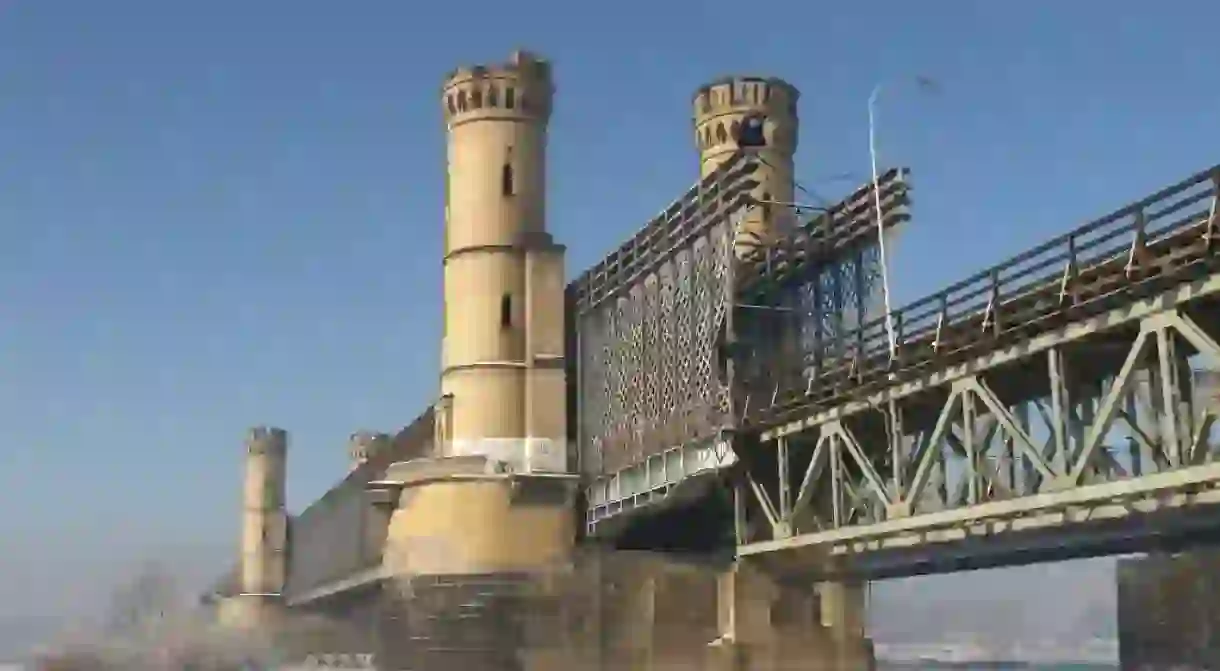This Bridge is Where World War Two Really Began

The history books try their best not to lie to us. Officially World War Two began on September 1, 1939. That much is true. It was a pivotal day in European history and most sources claim that the Battle of Westerplatte (off the peninsula of Gdańsk) was where World War Two began. However there was an earlier incident on the same day which officially marked the beginnings of this bloody war.
Where did World War Two really begin?
There were three key moments on September 1, 1939 that led to the start of World War Two. One of these was the infamous German attack on the peninsula at Westerplatte. On the same morning, German Nazi troops also stormed the Polish Post Office in Gdańsk, killing innocent workers. But there was another event that happened earlier that day. It was an early morning attack on a bridge in the town of Tczew. This is where World War Two really began.

What happened at the bridge in Tczew?
The little known town of Tczew was the real location for the start of World War Two. Reports cite that it was here at 4:34 a.m. on September 1, 1939 when German bombers arrived at Tczew Bridge (Most Tczewski). Polish soldiers spotted it and had thought it suspicious to see so many German troops coming towards the bridge at that time of the morning. The Polish soldiers had to do all they could to thwart any attack from the Germans. So actually it was the Polish sappers that decided to destroy and blow up the bridge. They did this to prevent the Germans from getting to the other side of the very wide river. The attacks at Westerplatte occurred at 4.45 a.m. on the same day, 11 minutes after the Tczew Bridge destruction. This fact was noted on the Tczew council records and is now on the city’s official website.

Why did the Germans value the bridge in Tczew?
Strategically, the bridge at Tczew was of high significance and the Germans knew it. This bridge spanned the wide banks of the longest river in Poland – the Wisła River. It was a whopping 837 metres long and at one point was the longest bridge in the world. The bridge was first built between 1851 to 1857 and it was used as a road bridge, a foot bridge and a railway bridge along the years. But the importance of the bridge was much more logistical than that. This bridge was a highly vital link across the Wisła River which was one of the main routes between Germany and Russia, or the Soviet Union as it then was. All the main freight trains came across here.

Is the bridge in Tczew still open today?
Yes it is. In fact, not only has the bridge been rebuilt and is fully functioning but it is still a hugely important logistical route within Poland. The bridge was actually rebuilt in 1940 but destroyed again in 1945 by the Germans. The final reconstruction of this famous bridge took place between 1958 and 1959 and it remains the same today. The railway line that passes through Tczew links Warsaw to cities such as Gdańsk, Bydgoszcz and Szczecin. You can cross it these days by train, vehicle or on foot and it has been restored to its former glory.

Getting to Tczew
Tczew may not be the most well known town in Poland, but getting here is no problem whatsoever. It is on a main train route to and from Warsaw, Gdańsk, Kraków and Bydgoszcz. Train tickets can be booked at any train station or online. Tczew is also located just one fast train stop from the famous UNESCO World Heritage Site at Malbork.

Is there anything else to do in Tczew?
Of course. There are many reasons to visit Tczew, which is becoming more of a touristic city year on year. As well as this historic bridge, the town has an eclectic range of interesting things to see and do. These include a genuine Dutch style windmill, the room where Napoleon once stayed, wall murals and some pretty churches. There is also a cycle path by the river which leads through this gorgeous Kociewie region. By night, the restaurants and bars of Tczew offer good choices for relaxing. At one of them, Pub Przystan, you can sip your sunset cocktail overlooking the bridge where it all began…

For more intriguing facts you never knew about Polish history, check out these facts that even the Polish don’t know.













